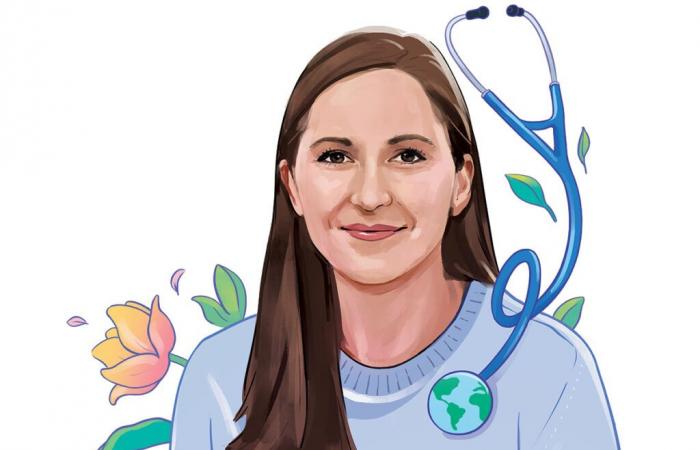QS What about mental health?
CPD We neglect it! According to a 2021 Quebec study, in the event of flooding of homes, after torrential rains, for example, nearly one in two people suffer from anxiety, depression, sleep disorders or post-traumatic stress. It’s the same thing for people whose house burns down in a wildfire. During these types of extreme events, we must be able to quickly deploy mental health teams on the ground, sometimes in remote areas.
In addition, we sense among many young people a concern about the future. Not necessarily strong enough to lead to a diagnosis, but high enough to fear a form of disengagement with the future, work, society. We hear about ecoanxiety, I prefer to say “ecoemotions”, which is broader. This includes, for example, young people’s incomprehension of government inaction.
QS Does the medical profession realize the importance of climate change and the environment on health?
CPD It’s starting! In 2020, out of 2,817 medical schools in 112 countries, only 15% addressed climate change. And often at the request of students! [Au Canada, en 2020, 86 % des étudiants et étudiantes en médecine souhaitaient que la santé environnementale soit incluse dans leur formation.] Since fall 2024, the new curriculum at the Faculty of Medicine at the University of Montreal, where I teach, addresses environmental health in an introductory course, then throughout the entire curriculum.
The problem was that the teachers were hesitant to teach a subject they had little knowledge of. We therefore put together a series of ten webinars for them. We cover the basic concepts, then the effects of climate change on, for example, the heart, lungs, mental health and allergies. The last webinar focuses on the responsibility of health personnel to reduce the network’s environmental footprint. And also to act as agents of change in the community. We also discuss this last subject with the students.
QS Can the fight against climate change be done in a doctor’s office?
CPD Some believe that the doctor’s role is limited to what he or she does in his or her office. That activism is for others. Except that, according to Chapter 3 of our code of ethics, we have a duty to concern ourselves with the health needs of people on an individual and collective level. However, it is clear that climate change represents a threat to individual and collective health. For me, it’s impossible to practice my job without having an environmental concern.
Doctors enjoy great credibility with the population, the media and governments. I feel that I must use mine to intervene publicly [par exemple, pour réclamer des mesures contre la pollution atmosphérique]. But at the end of the day, it’s a matter of conscience and a personal choice.
QS Can you describe situations where health and environmental issues intersect with those of society?
CPD In wealthier urban neighborhoods, there are more green spaces than in more disadvantaged areas. However, this greenery freshens the air and is a very good way to counter heat islands. Vegetation also filters some of the pollution. And natural environments make very good sponges to absorb water during extreme rains.
In addition, the benefits of nature on mental health and health in general have been demonstrated. Twenty minutes outdoors, even without moving, reduces blood pressure and salivary levels of cortisol, the stress hormone. The number of studies on the health benefits of nature has exploded in recent years. I find that some are more robust than studies on other treatments that are regularly prescribed.
QS Are you optimistic?
CPD Yes ! Because health affects and motivates everyone, as I said earlier. And also because every action taken to fight against climate change or to adapt to it will have tangible positive effects on our health. This is of course not an excuse to delay, because the longer you wait, the more difficult or expensive it will be to act. But I do not subscribe to the catastrophist discourse of “one minute to midnight”. It will never be too late to save lives or improve people’s quality of life by preserving the environment.






